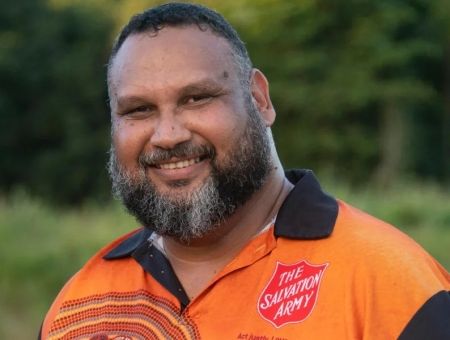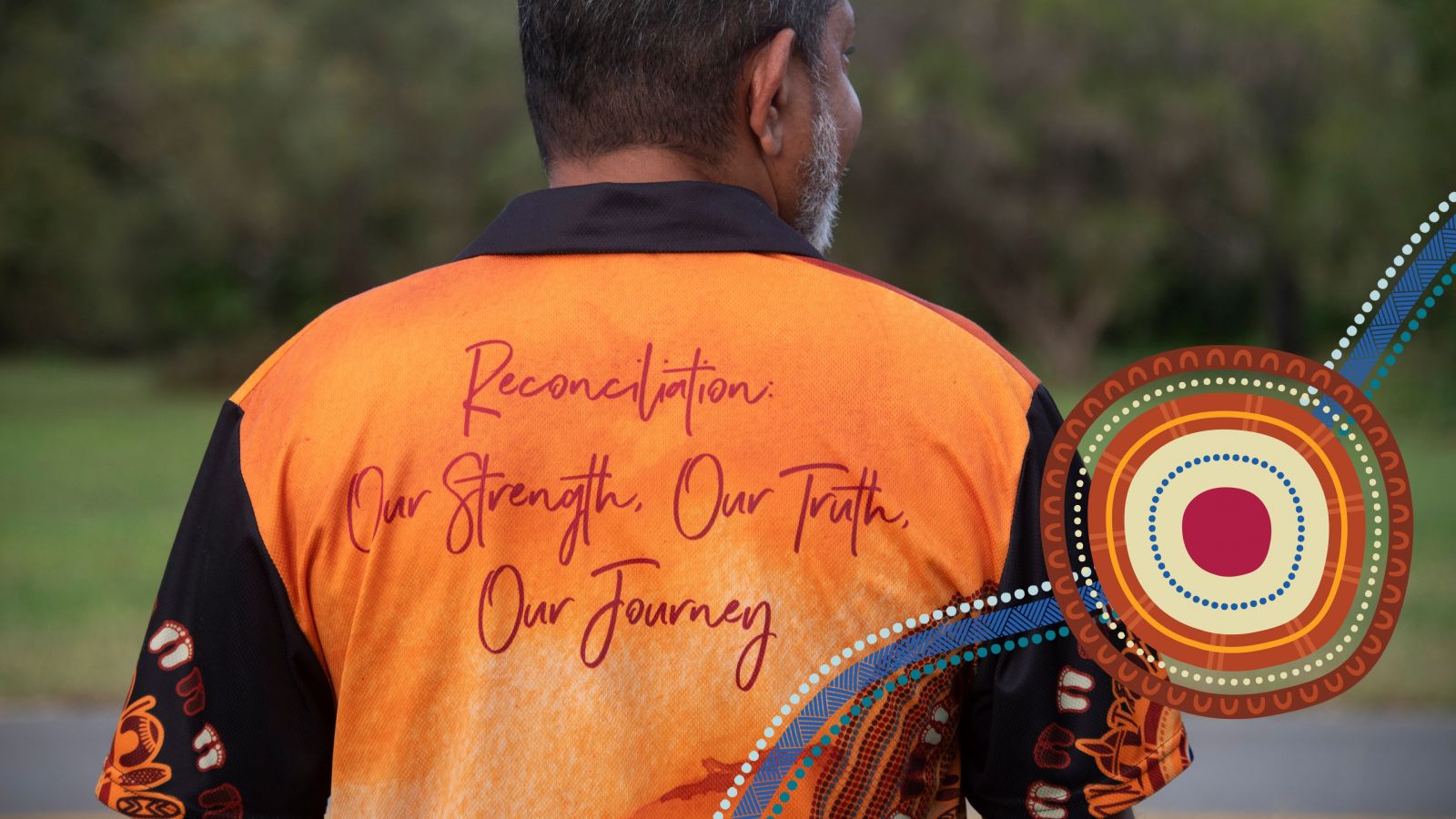National Reconciliation Week
We all have an essential role to play
Acknowledgement of Country
The Salvation Army acknowledges the Traditional Owners of the lands and waters throughout Australia. We pay our respect to Elders and acknowledge their continuing relationship to this land and the ongoing living cultures of Aboriginal and Torres Strait Islander peoples across Australia. We also acknowledge future aspirations of all First Nations peoples. Through respectful relationships we will work for the mutual flourishing of Indigenous and non-Indigenous Australians. We commit ourselves in prayer and practice to this land of Australia and its people, seeking reconciliation, unity and equity.
What is National Reconciliation Week?
National Reconciliation Week celebrates the history, culture and achievements of all Australians and encourages each and every person who calls Australia their home to actively contribute towards reconciliation in our country.
National Reconciliation Week began in 1993, as the ‘Week of Prayer for Reconciliation’ (during the ‘International Year of the World’s Indigenous Peoples’) and was supported by major faith communities. Three years later, in 1996, Australia’s first National Reconciliation Week was organised by the Council for Aboriginal Reconciliation.
Reconciliation Australia was established in 2001, to continue to provide national leadership on reconciliation.
Why is National Reconciliation Week and reconciliation so important?
According to Reconciliation Australia, National Reconciliation Week offers an opportunity “for all Australians to learn about our shared histories, cultures, achievements, and to explore how each of us can contribute to achieving reconciliation in Australia”.
The Salvation Army, Australia encourages and equips our churches, centres, staff and volunteers to actively participate in National Reconciliation Week events and celebrations.
Our vision for reconciliation is as a faith movement committed to social justice, equity and freedom. We aim to respect, value and acknowledge the unique cultures, spiritualities, histories and languages of the oldest surviving culture in the world, and to engage in a unified and positive relationship with Aboriginal and Torres Strait Islander peoples and their communities.
Read more about our Commitment to Reconciliation.
When is National Reconciliation Week?
Each year National Reconciliation Week is celebrated from 27 May though to 3 June. Reconciliation Week dates remain the same year on year to align with major milestones in our country’s reconciliation journey – the success of the 1967 referendum, and the High Court Mabo decision.
Journeying together towards reconciliation
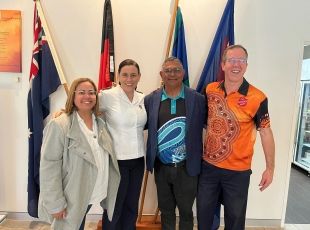
National Reconciliation Week 2024 theme
According to Reconciliation Australia, the National Reconciliation Week theme for 2024, Now More Than Ever, is a reminder that “no matter what, the fight for justice and the rights of Aboriginal and Torres Strait Islander people will —and must —continue…
"Now more than ever, the work continues. In treaty making, in truth telling, in understanding our history, in education, and in tackling racism. We need connection. We need respect. We need action. And we need change.
"Now more than ever, we need reconciliation."
![]()
How to celebrate Reconciliation Week
Reconciliation Australia encourages individuals, community groups and organisations to learn more about the needs and process of reconciliation, participate in, or hold educational events, encouraging every person to be active in their social circle, their school or work life and their neighbourhood, to promote and ensure a just, equitable and reconciled Australia.
Local Salvation Army churches and services hold a range of National Reconciliation Week events every year with the understanding that reconciliation is an ongoing and that each of us has a part to play in this essential process.
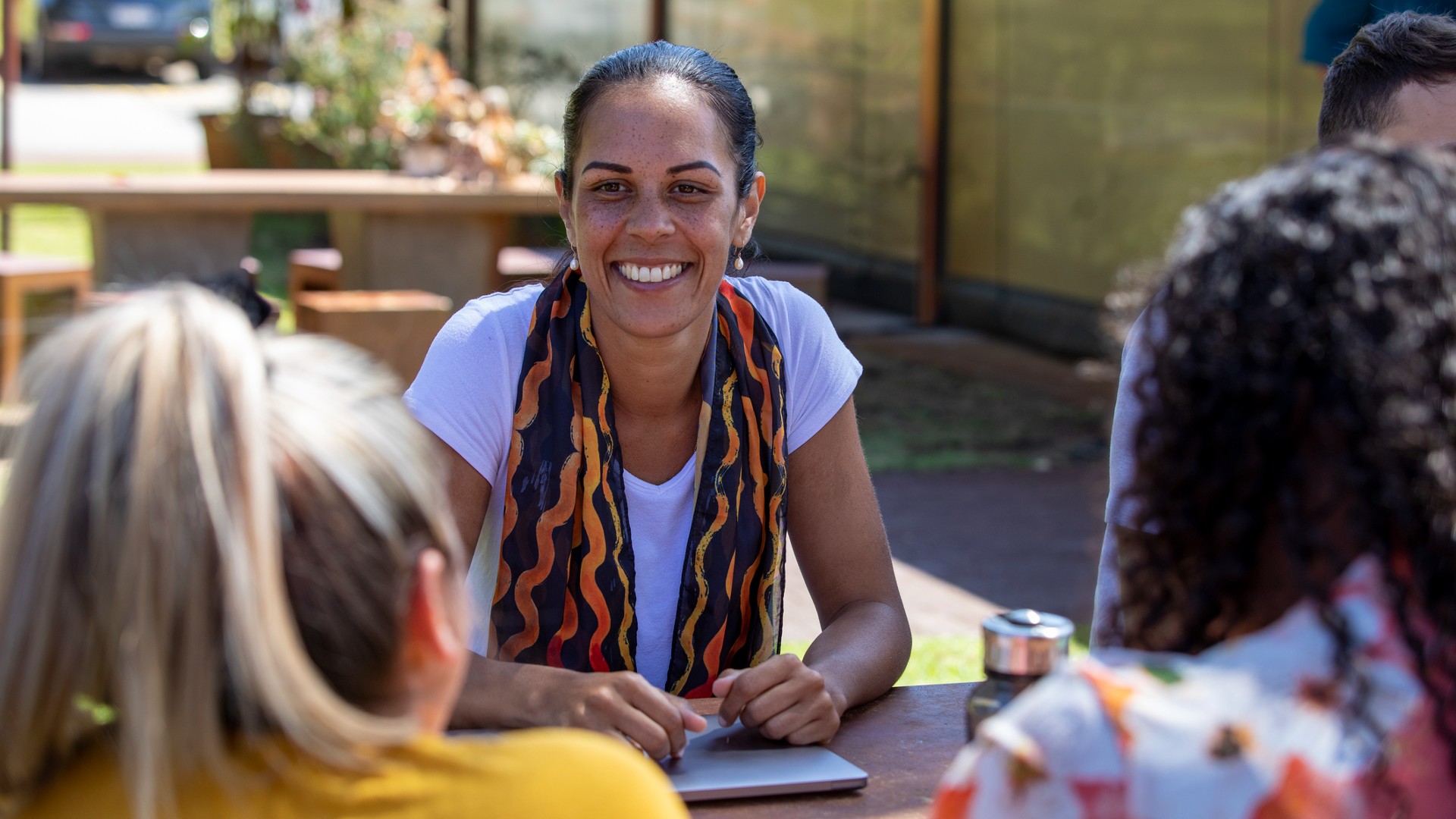
Salvation Army programs and partnerships
Salvation Army programs and partnerships help empower and encourage community leaders, and work towards reconciliation and greater equality for Aboriginal and Torres Strait Islander peoples.
Various programs include early intervention programs, youth justice programs, housing programs, sports programs, plus others.

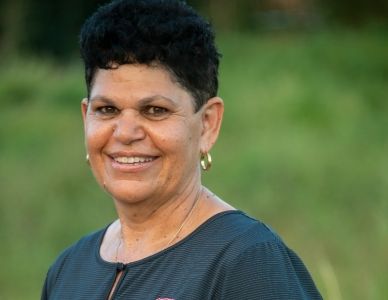
National Reconciliation Week Q&A
Shirli Congoo, General Manager, Territorial Aboriginal and Torres Strait Islander Team at The Salvation Army provides insight into National Reconciliation Week.
National Reconciliation Week encourages all Australians to intentionally focus on our shared history. The week recognises the ongoing impacts and reconciliation journey to unite and strengthen connections between Aboriginal and Torres Strait Islander peoples and non-Indigenous peoples.
Each year, National Reconciliation Week celebrates a different theme. This year’s theme, ‘Now More Than Ever’, encourages all Australians to be a voice for reconciliation in our everyday lives, in the places we live, work and socialise, with our friends, our family, our churches and our workplaces. It is about taking personal and organisational responsibility to keep working for justice and reconciliation.
Within The Salvation Army, we offer a range of resources for our services and centres and encourage learning, sharing and advocacy. One of many examples is inviting local Elders to share their wisdom and experiences, during National Reconciliation Week, but also throughout the year.
There are also many steps every person can take towards reconciliation, including:
- Learn about the significance of the two dates that mark the week from 27 May to 3 June.
- Acknowledge the Traditional Custodians of the land where you live or work. Feel free to let people on your social media platforms know which traditional lands you call home.
- Explore local Indigenous histories and culture. It is essential, enriching and sobering to learn about the history, culture, struggles and resilience of Traditional Custodians.
There are many different contexts where people can be supportive, from an individual level, family level, church level, workplace level, etc.
The key is to:
- Be respectful and open to learning. This provides a safe space to speak freely for ourselves about the subjects that are affecting our lives, people and community.
- Speak up when you hear someone say something inappropriate that reinforces negative racial stereotypes or are dismissive of our culture and people. If you are not confident in speaking up, share with a friend or colleague who may be able to support you. If you are in a workplace, speak with your line manager.
- Expand your knowledge about the true history of our nation. There is a wealth of information and be mindful that much of what was recorded in the earlier days was from the perspective of colonisers, so the whole truth is not told. Make time to do some research, to read and to listen, with a particular focus on resources by Indigenous authors.
It’s important that you take care of yourself, you won't always get it right. Surround yourself with like-minded people and ask for help if you need it.
Building trust and relationships through ongoing networking with Aboriginal and Torres Strait Islander organisations/groups is critical as well as being involved with local events and activities to engage with the local community. This increases the likelihood of improved referral and access pathways for participants or community members engaging with our programs.
We also work to ensure our places and programs are culturally safe and culturally appropriate.
Stories
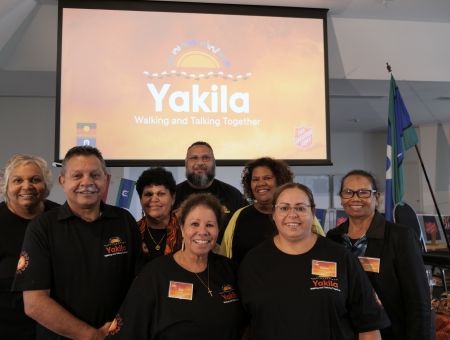
Yakila: Walking and talking together in reconciliation and understanding
Yakila: Walking and Talking Together’ gathering gave members around Australia the chance to communicate, share and learn together. Read more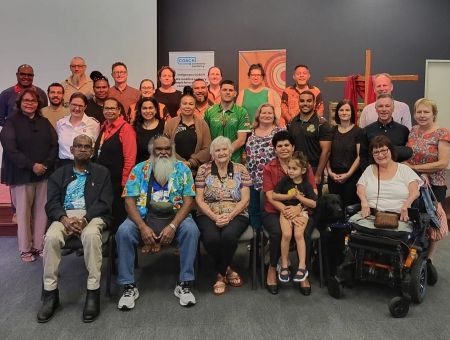
New Indigenous COACH mentoring to support families and individuals to flourish
COACH – ‘Creating Opportunities and Casting Hope’ – is a program aimed at strengthening communities through one-to-one mentoring. Read more